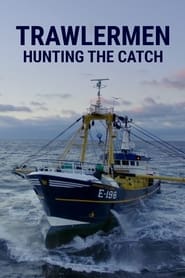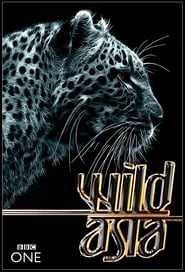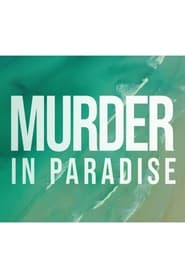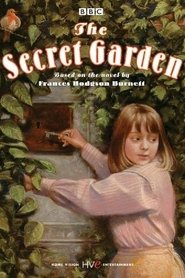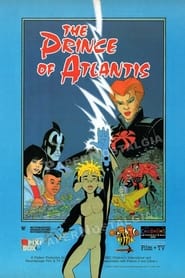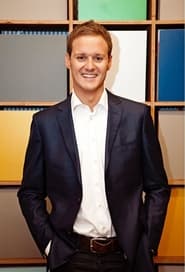Bbc One TV Series - Page 105
-
The Cage
0000
The Cage
0000
When Leanne and Matty discover they are both robbing from the safe at the inner-city casino they work in, their lives are set on a collision course; with each other, the local gangster they're stealing from, and the police. -
BBC News at Ten
0000
star 6.3The BBC News at Ten is the flagship evening news programme for British television channel BBC One and the BBC News channel. It is presented by Huw Edwards, and deputised by Fiona Bruce. It is the final comprehensive news programme of the day on BBC One. The programme was controversially moved from 9:00pm on 16 October 2000. It is broadcast Monday to Sunday at 10:00pm. It features twenty-five minutes of British national and international news, with an emphasis on the latter. On weekdays, it incorporates around seven minutes of news from the BBC regions around the country at approx 10:25pm to 10:30pm, which is then followed by a national weather forecast. During the first three months of its revival, ITV News at Ten averaged 2.2 million viewers compared with an average of 4.8 million viewers watching the BBC bulletin over the same period. The BBC News at Ten is currently the most watched news programme in Britain, averaging 4.9 million viewers each night. -
Animal Crime Scene
2005
Animal Crime Scene
2005
David Attenborough narrates a murder mystery series with a twist - forensic science techniques are used to find out who or what killed an animal. -
Carols from King's
1954
Carols from King's
1954
A solo chorister sings Once in Royal David's City to begin the traditional celebration of Christmas from the candlelit chapel of King's College, Cambridge. The world-famous choir sings carols old and new. Filmed amidst the beauty of historic King's College Chapel and first televised in 1954, and annually since 1963. -
The Fitz
2000
The Fitz
2000
The Fitz is a British sitcom written by stand-up comedian Owen O'Neill that was first broadcast on BBC Two between 4 August and 8 September 2000. It concerns an "unhinged Irish family" who live on the border between Northern Ireland and the Republic of Ireland. The series fared poorly critically, with some attacking its stereotyping and dated humour. -
Trawlermen: Hunting the Catch
2022
Following on from the earlier series 'Trawlermen', documentary series `Trawlermen: Hunting the Catch' follows fishermen around the clock as they embark on deep-sea fishing trips. From Shetland to Cornwall, and from the North Sea to the English Channel, cameras follow fisherman as they traverse 300,000 square miles of ocean. Each episode follows a different British fishing boat over the course of a single week as they battle the elements and hunt for a catch that will pay off for the skipper and the crew. -
Wild Asia
2009
star 6Asia is the most diverse region on Earth, home to a remarkable collection of iconic animals. Elusive snow leopards hunt in the Himalayas, orang-utans dwell deep within humid rainforests and wild horses graze the stony Gobi Desert. The Wild Asia series reveals the incredible range of Asia’s environments and wildlife. -
Playdays
1988
star 6.5PlayBus, later called Play Days was a children's pre-school television programme from the United Kingdom. The series ran from 17 October 1988 to 28 March 1997 on Children's BBC. Each daily episode would have the bus stop at one of the puppet characters bus stops. -
The Royal British Legion Festival of Remembrance
2007
The Royal British Legion's annual Festival of Remembrance. -
Gruey
1988
Gruey
1988
Gruey was a 1988 BBC TV children's comedy about the misadventures and escapades of Stephen 'Gruey' Grucock, a mischievous schoolboy in the Jennings and Just William mould. In 1989 another series was produced and aired, titled Gruey Twoey. Gruey was played by Kieran O'Brien. Gruey's best friend Annie Mappin was played by Casey-Lee Jolleys. -
Murder in Paradise
2023
Murder in Paradise
2023
Two of Northern Ireland’s leading journalists, Darragh MacIntyre and Allison Morris, revisit the tragic murder of 27-year-old Michaela McAreavey. -
The Family
1974
The Family
1974
The Family was a 1974 BBC television series made by producer Paul Watson, and directed by Franc Roddam. It was a fly-on-the-wall documentary series, seen by many as the precursor to reality television. It was similar to an American documentary which had aired the previous year in 1973, called An American Family. It followed the working-class Wilkins family of six of Reading, through their daily lives, warts and all, and culminated in the marriage of one of the daughters, which was plagued by fans and paparazzi alike. The show was the basis for two parodies: Monty Python's Flying Circus, in their very last episode which aired 5 December 1974, featured a sketch called "The Most Awful Family in Britain 1974"; and Benny Hill, on one of his 1975 specials, did a takeoff called "That Family." Margaret re-married and became Margaret Sainsbury; she died of a reported heart attack in Berkshire on 10 August 2008, aged 73. The format was revived in 2008. -
The Secret Garden
1975
star 7.4The Secret Garden is British television adaptation of the novel of the same name. Adapted, produced and directed by Dorothea Brooking, it was first broadcast on BBC 1 in seven, 30 minutes episodes in 1975. -
The Prince of Atlantis
0000
The Prince of Atlantis was a short lived CGI animated cartoon about a group of underwater creatures who protect the oceans. -
How to Be a Gardener
2002
How to Be a Gardener
2002
Alan Titchmarsh in collaboration with the Royal Horticultural Society presents an 8 part series on how to garden. -
Destination X
0000
Destination X
0000
It’s the adventure of a lifetime with one simple question at its heart: where in the world am I? Rob Brydon masterminds the high-stakes competition where nothing is as it seems... -
Chase The Case
2018
Chase The Case
2018
Chase the Case is a strategy gameshow that trades general knowledge for information. Five players begin the game by being given a case containing a secret amount of cash. Players answer questions to win visits to a soundproof secret vault where they can learn information about what's in their opponents' cases. As they are never allowed to see inside their own case, the only way to figure out what they are carrying is by the power of deduction. The audience play along at home as they are privy to all of the intelligence acquired in the vault. In a fast-paced endgame, players attempt to steal each other's cases via tense head-to-head challenges but only the player who gets over the finish line first will get to open the case they are holding and take home the prize. -
Wynne & Joanna: All at Sea
2025
Old friends Wynne Evans and Joanna Page set sail to explore the coast of south Wales. -
Spook Squad
0000
Spook Squad
0000
Spook Squad is a British children's television gameshow created by BBC Scotland. It ran on CBBC's section BBC1 and BBC2 from 6 January 2004, to 30 March 2004. The gameshow featured three children contestants entering a haunted castle in Scotland to assist Professor MacAbre in hunting ghosts before they reach their "death day" and gain superpowers. The show was filmed in Fyvie Castle. -
Bitsa
0000
Bitsa
0000
Bitsa was a British television programme broadcast from 1991 to 1996 on BBC 1. It involved creative arts and "makes" very much like later show SMart. It was repeated for a time on the now defunct digital channel BBC Choice. The show featured two presenters who would create craft projects from household junk and craft materials. Sometimes the items created were quite complex and advanced, but were always presented with instructions for viewers to follow. The show also featured a 'challenge' section, in which school children would shout three numbers corresponding to a selection of numbered boxes, each containing a different material, for example cardboard tubes, sticks or fabric. The presenters would then have three minutes to create something using only these materials. Much fervent use of a glue gun often ensued. The theme tune for Bitsa was written by Peter Charlton and the original musical arrangement was by Bill Le Sage, but after the first series the tune was reworked by Mark Reader from the rock band Stride





